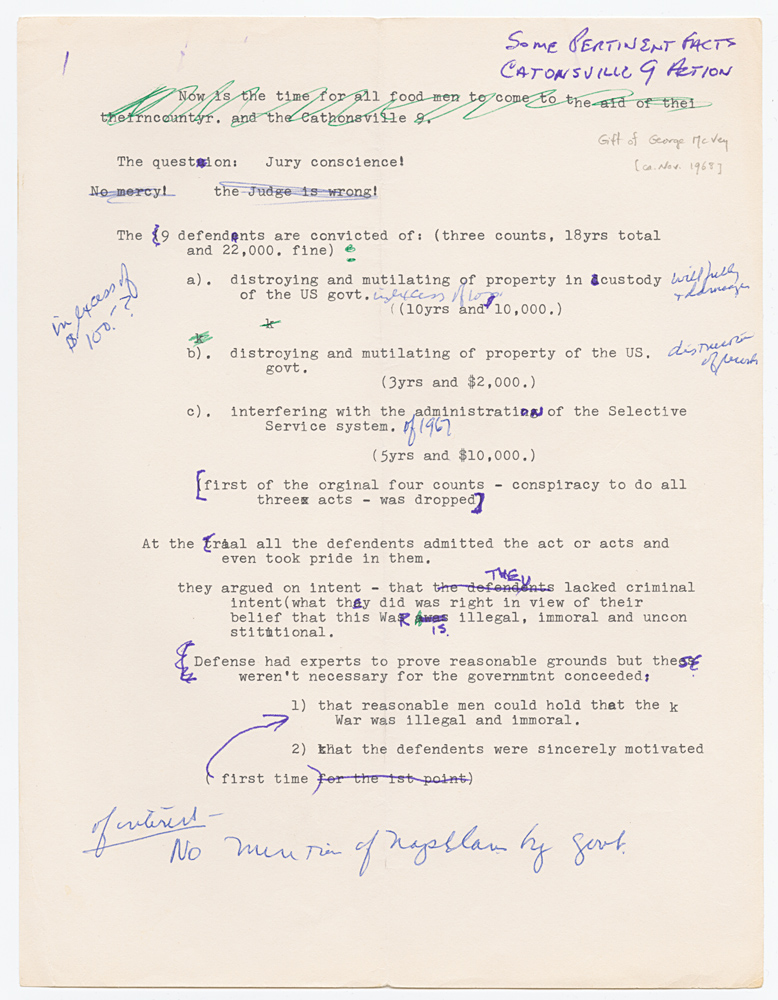 |
Some pertinent facts: Catonsville 9 action
 |
1 / 4 |
 |



| Collection: |
Cornell University Library |
| Date: |
1968 |
| Date of Digitization: |
2004 |
| Source: |
Daniel and Philip Berrigan Collection at the Division of Rare and Manuscript Collections, Cornell University Library |
| Original Dimensions: |
? |
| Creator: |
? |
|
|
Description:
These are some notes pertinent to the trial of the Catonsville Nine in Baltimore in October 1968.
Transcription: 1
Some Pertinent Facts
Catonsville 9 Action
The question: Jury conscience!
The 9 defendants are convicted of: (three counts, 18yrs total
and 22,000. fine):
a) distroying and mutilating of property in custody
of the US govt. in excess of $100 willfully & damage
(10 yrs. and $10,000)
b) distroying and mutilating of property of the US. distruction of bush
govt.
(3yrs. and $2,000.)
c) interfering with the administration of the Selective
Service system. of 1967
(5yrs. and $10,000.)
[first of the original four counts - conspiracy to do all
three acts - was dropped]
At the trial all the defendents admitted the act or acts and
even took pride in them.
they argued on intent - that they lacked criminal
intent (what they did was right in view of their
belief that this War is illegal, immoral and uncon
stitutional.
Defense had experts to prove reasonable grounds but these
weren’t necessary for the governmtnt conceded:
1) that reasonable men could hold that the War
was illegal and immoral. (first time)
2) that the defendents were sincerely motivated
of interest -
No mention of napalm by govt.
|




